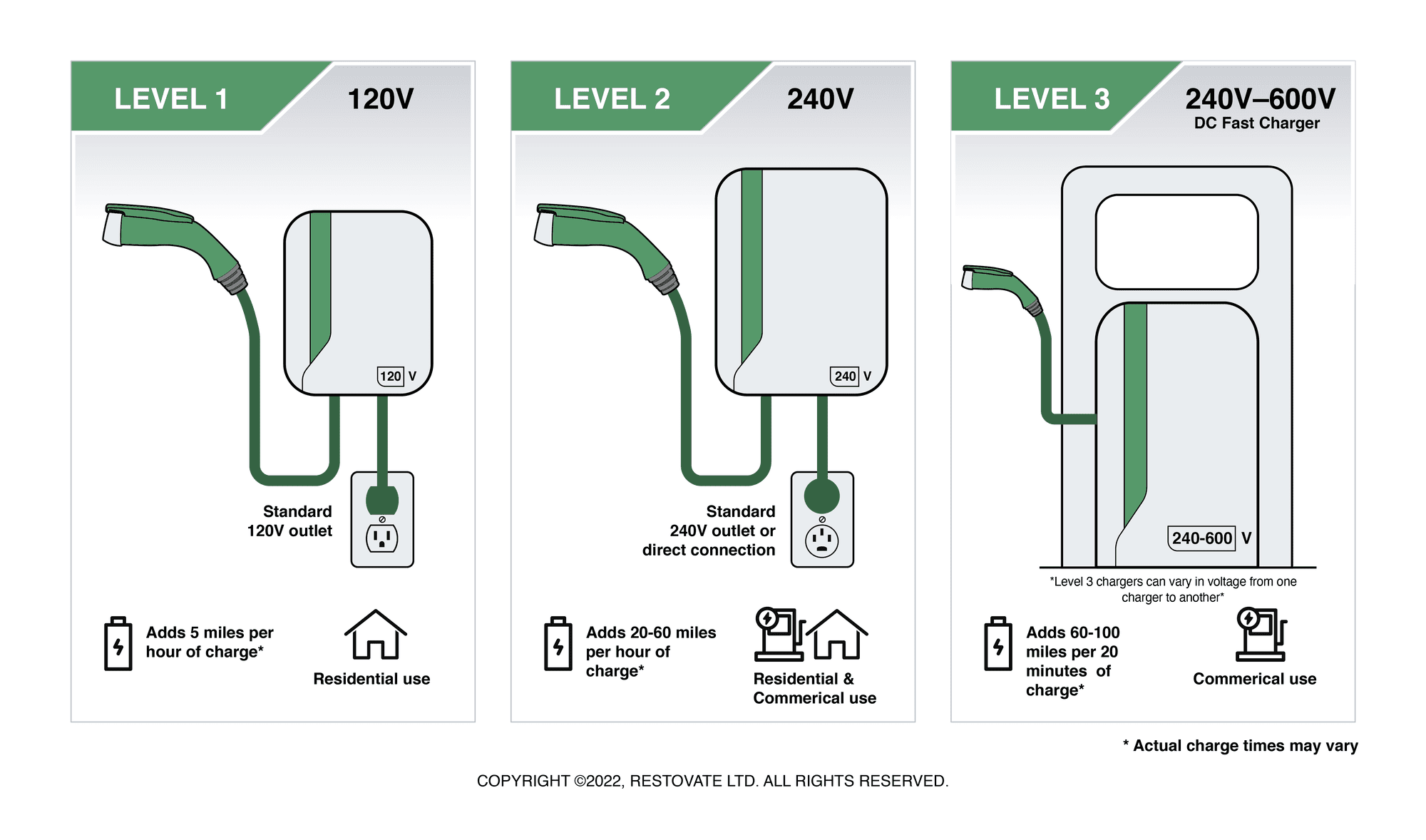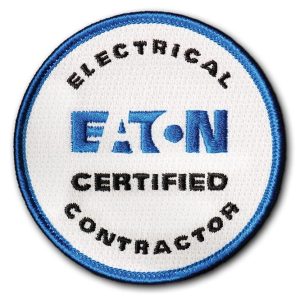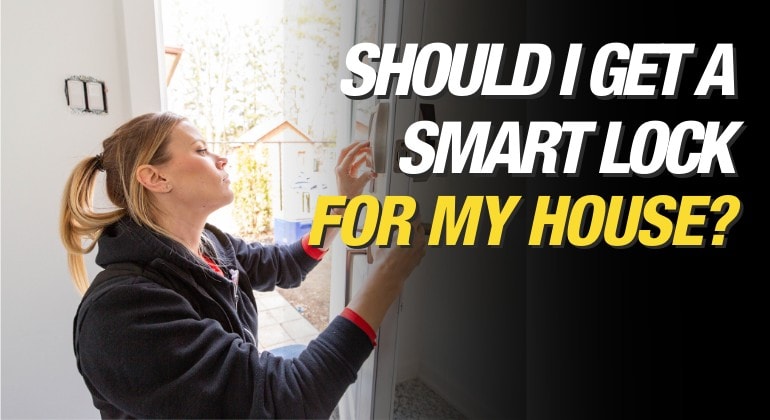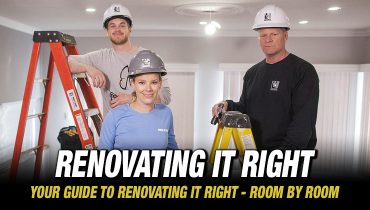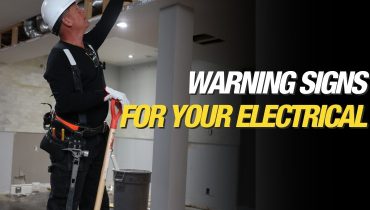How Can EZblocks Help Create Flexible, Community-Driven Memorial Spaces? When you’re creating a space that honors something as important as our veterans’ service, it’s not just about building walls and...

How To Choose An EV Charger For Your Home
By Mike Holmes
Mike’s Advice / Electrical
Wednesday, February 21st, 2024 @ 2:20pm
EV Charger Buying Guide
Electric Vehicles (EVs) are gaining increasing popularity, with a growing number of people either contemplating getting one or have already made the switch. According to a recent US study 22 million EVs will be on the road by 2030, and over 78% of EV charging will be done at home. In Canada, it’s also estimated that there will be 13.2 million electric vehicles on the road by 2030 with a predicted increase of EV charging at home. All this to say, new homes will need to be EV ready, but how do you choose the right EV charger for your home?
If you plan on buying an EV or have an EV, it is a worthwhile investment to install a Level 2 EV charger in your garage or on your driveway. Using a level 2 charger will typically allow you to charge an electric vehicle in a couple of hours. Models can be installed in a homeowner’s garage as a stand-alone unit or as a 240V plug-in version, depending on the electrical capabilities.
I don’t have an EV vehicle yet, but I’m considering getting one soon. I try to practice what I preach and have been researching to familiarize myself with what to expect and what I need to know. Part of my research included consulting with the EATON team. I’ve been working with them for several years now and when it comes to electrical products, they are continually manufacturing innovative electrical products for the home. I have to say I was very impressed with their line of EV charging stations for your home.
While I’m not an expert on EV Chargers here’s what I’ve learned from the EATON experts and what you need to know.
What are EV Chargers?
Electric Vehicle (EV) chargers or charging stations are devices that provide electrical power to recharge the batteries in your electric vehicles. These chargers come in various types and with varying power requirements, designed to suit the different needs of electrical vehicle owners.
Types of EV Charging Stations
There are 3 Levels of EV Charging Stations.
Level 1 Charger
These chargers are typically the slowest and use a standard household outlet. They provide 120 volts of AC power (VAC) and are convenient for overnight charging at home. Level 1 chargers are commonly included with the purchase of an electric vehicle.
Level 2 Charger
A Level 2 charger provides 240 VAC and is faster than a Level 1 charger. They are commonly installed at homes, workplaces, and public charging stations.
BONUS TIP: 32AMP are the most common residential EV charging stations you’ll see installed in a lot of homes, and they typically charge at a speed that will take approximately 8 hrs (or overnight) to charge using AC power.
Level 3 Charger
Level 3 Chargers, also known as DC (Direct Current) fast chargers, provide significantly faster charging rates than Level 2 chargers. These are typically found at public charging stations along highways (gas service stations) and in urban centres. They can recharge an electric vehicle to 80% or more in 30 minutes or less.
How Does a Home EV Charging Station Work?
A home EV charging station provides a dedicated and convenient source of power to recharge your EV. Your EV’s battery capacity, the station’s charging speed, and the battery’s initial level of charge all affect how long it takes to fully charge.
A charging station requires a dedicated circuit with the appropriate voltage and current capacity. Level 2 charging systems typically operate on 240 VAC. It comes in plug-in or hardwired versions and must be installed by a Licensed Electrician.
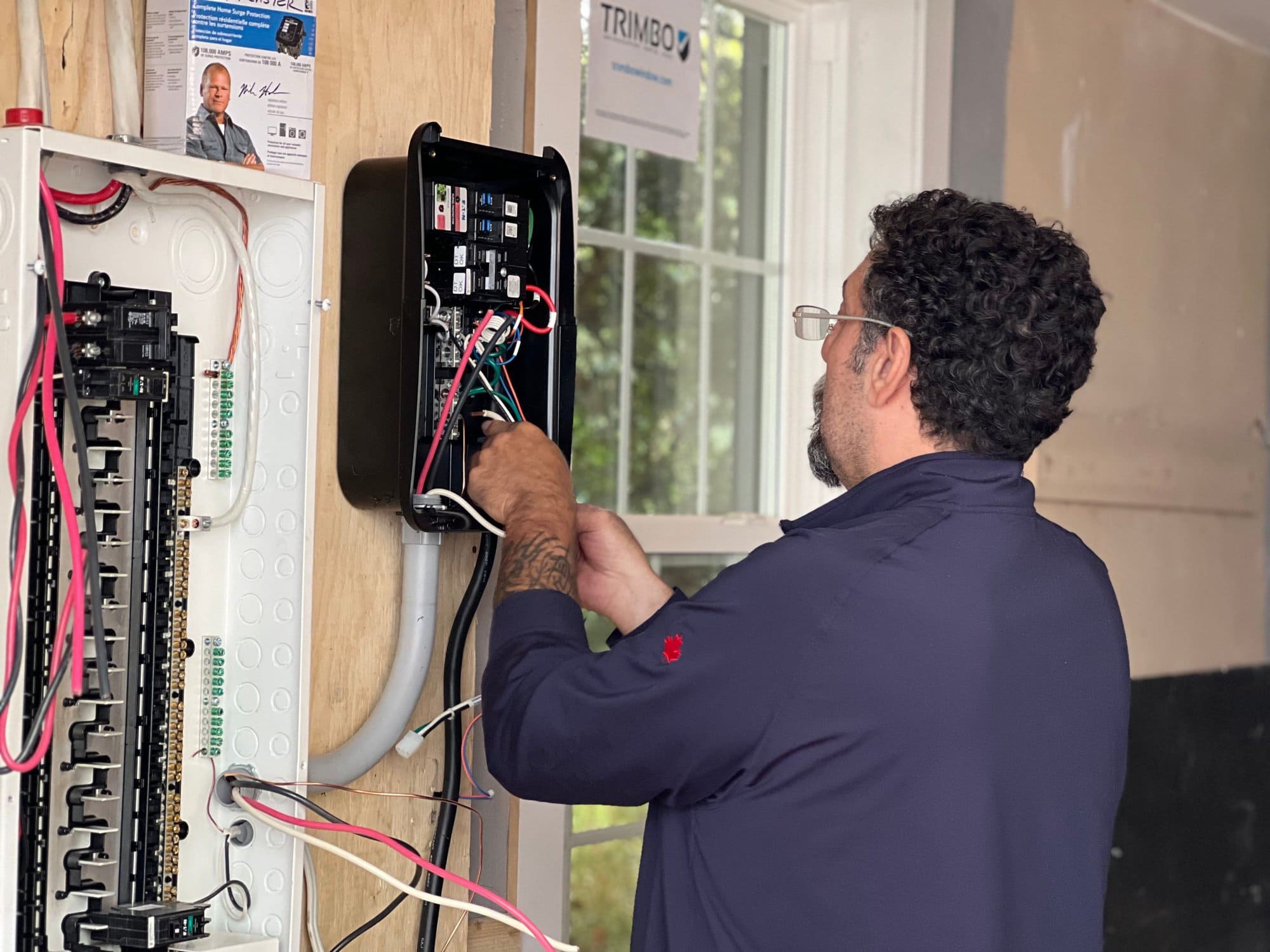
A Level 2 EV charger must be installed by a Licensed Electrician. The Licensed Electrician will be knowledgeable of the requirements and will ensure all the local building and electrical codes are followed. More on that later below.
What’s Included In An EV Charger?
The charging station includes a charging cable with a connector that matches your electric vehicle’s receptacle. These connectors can vary depending on the make and model of your EV, but more companies, like Eaton, are ensuring that all connector types are recognized as part of their EV solution. The cable is typically stored on a hook or holder on the charging station when not charging.
To charge the vehicle, you must plug the connector into the vehicle’s charging port. Once locked in, your EV communicates with the charging station to determine the appropriate charging rate and manages the flow of electricity.
Most home charging stations provide some degree of user monitoring and management. Some may have an interactive display. Other models, like Eaton, have a mobile app that allows you to plan charging times, view charging status, and start and stop the charging process anytime from your phone.
EV chargers also come with several safety features like surge, overcurrent, and ground fault protection. If there is a problem or defect, the charger will shut off.
Charging Speed of the EV Charger
There are different factors that affect the charging speed, like the power output and the vehicle being charged. However, typically, Level 2 charging can be anywhere from 5 to 15 times faster than Level 1 charging.
For example; charging for 1 hour with a 7.7 kW power output will be about 25 miles (or 40 kilometres) of range, as the charging power increases so will the range. The vehicle, the size of the battery, and the condition of the car all affect actual power usage.
Do You Need a Home EV Charging Station?
Homeowners don’t necessarily need a home EV Charging station. However, having one can offer several advantages, depending on the circumstances, and requirements.
Benefits of EV charging stations include:
- Convenience
- Faster charging options
- Cost savings as you can charge your vehicle during non-peak times
The capacity of a home EV Level 2 charger depends on your needs, your car, and your home’s electrical system, but it will be much faster than charging via a regular 120VAC outlet.
REMEMBER, installing an EV charger is not a DIY project. You can NOT watch a YouTube video and do it yourself. The work needs to be done by a Licensed Electrician
What You Should Know Before Considering An EV Charger
Here’s what homeowners will need to consider and what a Licensed Electrician will discuss with you BEFORE you install a Level 2 EV charging station in your home:
- What is the AMPERAGE of the panel in your home?
- What is the utility AMPERAGE TO your home (the type of service that the utility company is providing)?
- Do you have a fuse or breaker panel?
- Is your panel maxed out and will you require an upgrade to support the additional electrical draw?
Your Level 2 EV charger will require a separate dedicated outlet and hook up to your electrical panel. It’s also important for your LEC to prepare a load calculation, before adding the new load.
RELATED:
What Is The Best EV Charger On The Market?
With an EV charger, you can charge where you park allowing you to conveniently charge your electrical vehicle at your fingertips. I’ve seen how the Eaton Green Motion smart breaker chargers work and they are great. I recommend them to anyone looking to get an EV charger installed in their home.
They provide flexible and fast installation options. Eaton smart breakers also allow homeowners to manage energy costs by scheduling charging times during off–peak hours when costs are lower. Plus, you can take advantage of any available utility rebate programs to help offset some of the installation costs.

We installed this Level 2 charger from Eaton on our project.
What makes the Eaton EV Charger different and innovative is that it combines the circuit protection breaker, metering, and EV charger in one product. This means you don’t need to have an EV Charger standalone unit and can simply install the Green Motion EV smart breaker charger directly into your panel and connect it to the 25ft charging cable included in your kit, significantly reducing your installation costs.
If your panel isn’t close to your charging point, you can use the standalone Green Motion smart breaker wall charger. This model comes with a built-in surge protector. This is brilliant, as it provides EV charging capabilities as well as surge protection to keep you and your panel safe. It also allows for multiple installation options.
Learn more about Eaton EV Chargers and why they have the Holmes seal of approval
Multiple EV Charger Installation Options
Eaton’s EV Green Motion smart breaker charger offers multiple installation options to suit any homeowner’s needs.
Direct Connect Kit
The EV smart breaker charger direct connect kit installs directly into the loadcentre or panel, close to where the car is parked. This is a great solution if your panel is already in the garage as you don’t need additional hardware or a wall charger taking up space on your wall. Your LEC can simply install this in your loadcentre (if you have the space) and you have a charging cable and plug to charge your EV.

One feature I love about this charger is that, with this setup, the EV charger is discreetly hidden within your panel.
The EV connector (plug) has a patented LED indicator on the handle which allows you to quickly verify your EV is charging and provides the status of your vehicle charge.
Direct Connect Kit + Junction Box
This type of charger provides the same features as the Direct Connect Kit, but it also includes a junction box for when the EV is farther away from the panel or loadcentre. An optional cord holster is also available for charging cable cord maintenance.

What’s great with this charger, is if you don’t have space in your garage, you could park your car on the street and still conveniently charge it safely.
EV Wall Charger (hardwired)
If you don’t have your load centre in the garage and prefer the look of a wall charger to a junction box, the EV Wall charger is the model for you.

If you like the look of the charger and have the space this is a great option for you.
The EV wall charger can be installed indoors or outdoors for additional versatility and convenience with an optional pedestal to mount up to two wall chargers. It comes with an EV connector and a 25-foot cord with cord management.
EV Wall Charger With Plug-In
You can also have a plug-in option if hardwiring the wall charger will be difficult. This EV charger option can also be installed in both indoor and outdoor settings.

This EV charger model is plugged into a 240 V plug-in receptacle instead of being hardwired
.
Eaton EV Charger Manager App
I love how Eaton has thought about everything when it comes to the design of this charger. The Eaton Green Motion EV Smart Breaker Charger is designed to offer additional functionality, connectivity and convenience while connected to WIFI all through the Eaton EV Charger Management app.

Eaton’s Green Motion EV Charger Manager app will help you track energy usage from anywhere, manage chargers and save on energy costs by taking advantage of off-peak charging rates.
Through the app, you can also:
- MONITOR AND CONTROL CHARGING – Track energy usage with real-time statistics and insights
- SAVE MONEY – Schedule charging based on Time of Use rates (TOU) to reduce costs
- STAY UP TO DATE – Receive notifications on charging status, power outages and ground fault conditions
- MANAGE MULTIPLE CHARGERS – Provides flexibility and control to manage multiple chargers and cap charging sessions
Understanding Household Power Supply Capacity and Your Electrical Panel
I’m not an electrician but here is an easy way to describe your household power and your electrical panel. The electrical capacity is the maximum power the service panel can supply at one time.
Watts is the unit of measurement for electrical power, which is the product of voltage and current. Additionally, licensed electrical contractors measure load and capacity in units of current, known as amperes, or amps, because residential voltage never changes.
The maximum capacity should be marked on your electrical panel. The minimum capacity for a home is 100 amps, but most new construction is 200 amps. Larger, newer homes can even have panels rated for 300 or 400 amps.
Existing panels in older homes will likely be rated for 60 amps or even less. If you get a lot of tripping – you’ll need to get this checked out. Consult with a LEC. You may need to upgrade to 200 amps or more for a level 2 EV charging station.
RELATED
Hire a Licensed Electrical Contractor for Your EV Charger System Installation
When it comes to installing an EV Charger in your home it’s important to hire a Licensed Electrician to do the job. They will also need to assess your current panel, to make sure it can handle the extra electrical load. Think safety first!
It’s important to work with a Licensed Electrical Contractor. It’s also important to purchase quality products, especially when it comes to anything electrical. That includes EV chargers. All electrical products go through diligent testing and must have a Certification Mark present on all equipment (UL, ETL, CSA, etc.).

Here are some of the common certification marks you’d typically see. Check with your local electrical authority which marks are approved. If you’re in Ontario you can check ESAsafe.com for a full list of approvals.
Ensure you purchase your EV charging station from a reliable source and trusted manufacturer, like Eaton. And don’t forget it’s important to hire a licensed electrical contractor to help with the installation.
RELATED
EATON CERTIFIED CONTRACTOR NETWORK
Even better, hire a licensed electrician from the Eaton Certified Contractor Network (ECCN).
By hiring these electricians, you ensure that skilled professionals will handle the installation of your EATON EV charger. They are trained in the entire Eaton product line, guaranteeing the use of high-quality certified Eaton products. This ensures that your charger is installed properly and safely, giving you peace of mind.
RELATED
Warranty and Service
As someone who values quality and reliability, I understand the importance of a strong warranty when investing in any product. This is especially true for EV chargers as it’s a big investment. The Eaton Green Motion Smart Breaker EV Chargers come with a 3-year standard manufacturer warranty providing you with significant peace of mind and protection.
Choosing an EV charger is not just about features and specifications. With a robust warranty, you know your investment is protected for years to come.
I think the demand for electric vehicles is going to increase. That means homeowners will be looking for options to charge their EVs that are convenient and cost-effective. Let’s face it we live in a world where we expect convenience. Installing a Level 2 EV charger like the Eaton Green Motion EV Smart Breaker Charger in your home can make sense. It’s convenient, typically cheaper to buy and install and economical to operate than public chargers, especially fast chargers.
READ MORE

